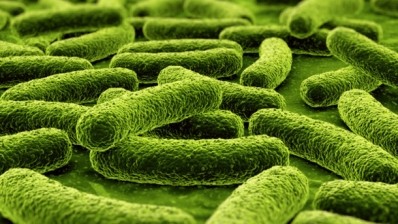Cancer risk study suggests meat and sugar are bad, while plants are good

The study, published in Nutrition Journal, investigated the relationship between major dietary patterns and colorectal cancer (CRC) risk in a case-control study population of more than 1,000 people.
Led by Professor Peizhong Peter Wang of Memorial University of Newfoundland, Canada, the research team reported that that those who consumed high levels of meat or sugar were associated with higher risks of developing colorectal cancer, while those consuming plant-based diets has lower risks.
“The present study demonstrated that diets that are characterized by a high consumption of red meat, processed meat, fish and processed fish (labelled as the Meat-diet pattern) or with a high consumption of fruit pies, tarts, desserts and sweets (labelled as the Sugary-diet pattern) are associated with an increased risk of CRC in a Canadian population. However, the Plant based diet pattern of fruits, vegetables and whole grains has a protective effect against CRC,” wrote the team.
Wang and colleagues suggested that their finding that meat-based and sugary diet patterns are linked to an increased risk, while plant-based diet patterns decrease risk could guide the promotion of healthy eating for primary prevention of the cancer in the population.
Study details
Wang and his colleagues analysed data from a population based case-control study including 506 colorectal cancer patients (306 men and 200 women) and 673 healthy controls (400 men and 273 women), aged between 20 and 74 years.
Dietary habits were assessed via a 169-item food frequency questionnaire (FFQ), before logistic regression analyses were performed to investigate the association between dietary patterns and cancer risk.
“Three major dietary patterns were derived using factor analysis, namely a Meat-diet pattern, a Plant-based diet pattern and a Sugary-diet pattern,” said the team. “In combination the three dietary patterns explained 74% of the total variance in food intake.”
Further analysis suggested that the meat-diet and the sugary-diet increased the risk of colorectal cancer risk with corresponding odds ratios of 1.84 and 2.26 for people in the highest intake quintile compared to those in the lowest.
In contrast, the plant-based diet pattern was found to decrease the risk of CRC with a corresponding odds ratio of 0.55.
“High consumption of red meat, processed meat, sweets and processed sugar, which are typical characteristics of the Meat-diet and Sugary-diet patterns, might determine these patterns’ relationship with CRC,” said the team – noting that the causal mechanism could involve overweight and obesity, which previous studies have found to be important risk factors for cancer development.
They added that the potential protective effect seen from a dietary pattern rich in fruits, vegetables and whole grains may be due to the fact that they are good sources of vitamins A, C, and E, fibres, minerals, selenium, and carotenoids.
Source: Nutrition Journal
Volume 14, Number 8, doi: 10.1186/1475-2891-14-8
“Dietary patterns and colorectal cancer: results from a Canadian population-based study”
Authors: Zhi Chen, Peizhong Peter Wang, et al












